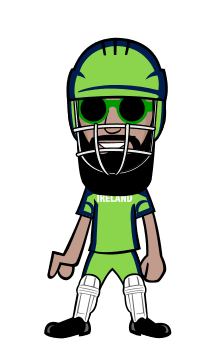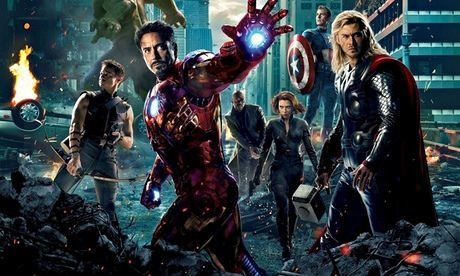
They bring in the big bucks, provide multiple spinoffs and sequels and offset the general decline in cinema audiences in the US, but is Hollywood overdoing it when it comes to superheroes?
Over the next five years a remarkable 30 superhero movies are expected to be released by Disney, Warner Bros., Fox and Sony Pictures in a crush of fantasy power play. And when, last week, Kevin Feige, president of Marvel Studios, took to the stage at the historic El Capitan theatre on Hollywood Boulevard to discuss the studio’s slate of superhero films to 2019, he said there would be many more, “if there are years after 2019”.
The ambitious list includes The Black Panther and Captain Marvel, the first superhero films starring black and female leads respectively. They will join the Marvel “universe” of characters such as Iron Man, Captain America and Thor.
It’s hard to question the confidence of Marvel. Since it was bought in 2008 by Walt Disney for $4bn, it has generated $7bn by mining a catalogue of superhero characters developed over decades of comic book publishing. With each film introducing new characters with interconnecting plots, Feige reinforces his reputation as one of the shrewdest studio heads of his generation.
It was Feige who resurrected the career of Robert Downey Jr by casting him as Iron Man. He hired TV director Joss Whedon to make The Avengers, the third highest grossing film in history. He approved Thorand Guardians of the Galaxy and it is Feige who will probably sign off on Benedict Cumberbatch to play Dr Strange.
But Marvel is far from alone. Warner Bros., owner of the rights to DC Comics, has unveiled its own 10-movie slate of superhero films, including Batman v Superman: Dawn of Justice next year, Suicide Squadand Flash. Rupert Murdoch’s Fox has The Wolverine, the X-Men series and the Fantastic Four. For the Hollywood studios, faced with declining theatre revenue, the superhero genre is considered a winning strategy.
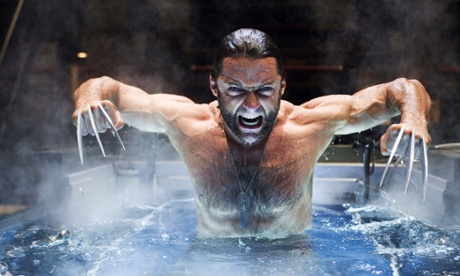
Jeff Ayres, manager at New York’s famous Forbidden Planet comic bookstore, says it’s no mystery why Marvel’s film slate is dominant: it is derived from a generation of superheroes with complicated inner lives.
“They’re from the minds of Jack Kirby, Steve Ditko and Stan Lee – that’s why those characters are so durable. Marvel characters stand the test of time because they’re based on real human foibles. Unless they’re sent down from heaven like Thor, they always have one foot in reality.”
That is not always true of DC Comics heroes, Ayres continues: “It’s harder to identify with a billionaire who turns himself into something else or with Superman who gives himself problems to make himself more real.”
Character considerations aside, critical voices are starting to confess to a certain superhero fatigue. The respected critic, Todd VanDerWerff, noted last week that the seemingly endless slate of superhero films has begun to seem like a long list of chores on a cinemagoer’s to-do list. “It’s about getting trapped in these never-ending concentric circles of hype ... the constant feeling that everything is buzz for something else – even the movies themselves.”
For directors and actors, superhero films are now regarded as the fastest way up the ladder as well as a guaranteed payday.
Christopher Nolan, 44, director of the Dark Knight trilogy of films starring Heath Ledger and Christian Bale that grossed $2.5bn, is being paid $10m or 10% of the revenue for the imminent Matthew McConaughey sci-fi epic Interstellar. That’s more than many A-list actors. Nolan is so highly regarded and known for bringing in films ahead of schedule and under budget that Warner Bros. pays for his office suite, assistants and other expenses without any contractual obligation on him to release his projects through the studio.
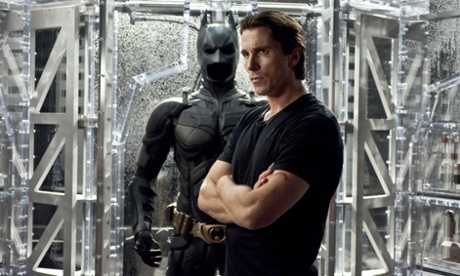
Despite some anxiety about superhero ennui, the next frontiers for the genre are already established. Sony is reported to be planning Glass Ceiling, an all-female Spider-Man-related film of female superheroes, the Black Cat, Silver Sable, Spider-Girl and Silk. Marvel says it will have the female-driven Captain Marvel film in theatres in 2017, and DC is bringing Wonder Woman to the screen.
But it may be up to Feige and Marvel to introduce the racial variation. Black Panther comes from the Illuminati – a group of superheroes looking to create a superhero government. Otherwise known as T’Challa, Black Panther has been granted superhuman speed, strength and agility, and an unsurpassed sense of smell by the Panther God. On his journey, he battles the Sons of the Serpent – a group of racist “patriots” who hate minorities.
Cumberbatch is said to be looking at the role of Dr Strange, a genius, egotistical neurosurgeon whose hands are injured in an accident. After travelling to the Himalayas to learn mysticism, he is elevated to Sorcerer Supreme, living in a New York townhouse with Wong, his manservant and Kung Fu magician.
Last week Feige, who failed to get into the University of Southern California School of Cinematic Arts five times, said Marvel’s production slate only looked ahead to 2019. Marvel may never re-acquire the rights to X-Men or Spider-Man but it has a universe of characters it controls entirely.
The reign of the superhero movie is unlikely to come to an end any time soon “if they maintain the quality”, predicts Ayres.
When Bloomberg Businessweek visited Feige in his office earlier this year, a reporter identified a planning map of films in Feige’s office. “It’s like looking through the Hubble telescope. You go, ‘What’s happening back there? I can sort of see it,’ ” he laughs. “They printed out a new one recently that went to 2028.”
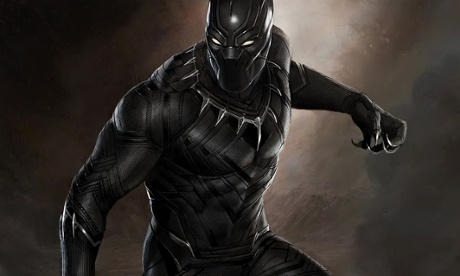
Crusaders coming soon
The Black Panther
The character also known as T’Challa will be played by Chadwick Boseman, who is Marvel’s first black superhero lead, portraying the monarch superhero born to the heir of Wakanda, a fictional African kingdom, to battle the Sons of the Serpent.
Captain Marvel
Another from Marvel’s series of new movies, this will be the first to feature a female lead. Captain Marvel (below) is the alter ego of a character named Carol Danvers.
Dr Strange
Benedict Cumberbatch, who plays Sherlock Holmes in the BBC series, is said to be looking at the role of the genius egotistical neurosurgeon living in a New York townhouse with manservant and Kung Fu magician Wong, who loses the ability to perform surgery and turns to magic.
Glass Ceiling
Set to star an all-female Spider-Man-related cast of superheroes, drawing on the superpowered women in Peter Parker’s life. Glass Ceiling isn’t based on any existing comic book story, so moviegoers will have to be patient for plot details.
Batman v Superman: Dawn of Justice
This will unite two of the greatest superheroes (below). Batman, it is said, will have two suits, one of them shooting missiles. The character of Robin is rumoured to be female.

